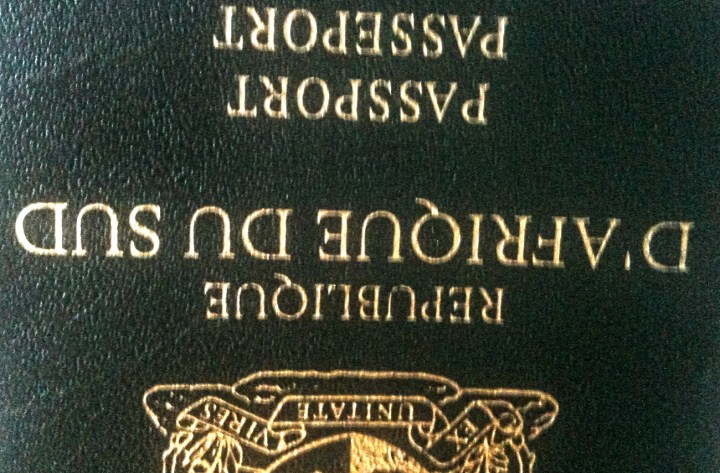South Africa
Op-Ed: ‘Undesirable persons’ – the immigration law that is cruel and inhumane

Given the Constitutional Court’s previous judgment and the loaded history of expelling persons labelled “undesirable”, it is difficult to conceive of a constitutional justification for banning people from the country. Yet equally “undesirable” immigration laws remain. By SHAYDA VANCE.
In 2010, after my first year of law school, I spent two months as an intern at the Legal Resources Centre in Johannesburg. It was the year of the World Cup and the city was alive with music and colour. Every evening, crowds of South Africans, Italians, Columbians, Americans, Kenyans and others gathered in bars, parks and stadiums across the country united in their passion for the game. I fell in love with Johannesburg that winter and part of me has felt at home here ever since.
2010 was also the year I met my husband. He was a lawyer, like me, and he had a gentle kindness I admired. Over the next two years we travelled back and forth between Johannesburg and New York, weighing one city against the other, debating where to make our home together. Johannesburg easily won in the end: good weather, wonderful people, and for two young lawyers, a progressive Constitution with so much potential to transform the country. We married and I moved to Johannesburg in 2012.
Last week, two years later, my application to renew my visa was unexpectedly rejected only a few days before my current visa was due to expire. Under South Africa’s new immigration regulations, I now ran the risk of being labelled an “undesirable person” and banned from returning to the country if I overstayed my visa. Afraid of the time it would take to re-apply and receive a new visa, I promptly left for the United States, leaving my home and husband 13,000 kilometres behind.
In 2000, in a unanimous judgment, the Constitutional Court struck down a previous version of the immigration law with the effect of separating families. Writing for the Court, Justice O’Regan states, “a central aspect of marriage is cohabitation, the right (and duty) to live together, and legislation that significantly impairs the ability of spouses to honour that obligation would also constitute a limitation of the right to dignity.” Under the new immigration regulations, any person who overstays their visa and leaves South Africa is labelled “undesirable” and banned from returning to the country (and, in many cases, their families) for up to ten years. I count myself fortunate to have parents and a safe home where I can wait out the application process and the financial means to make the trip. Many affected by the new regulations are less fortunate and may be forced to remain in South Africa illegally with all the risks that entails.
The term “undesirable” itself has an unsavoury past. It is most commonly known for its use in Nazi Germany to label Jews, homosexuals, persons with disabilities and others to be sent to concentration camps. The term was also a label in Soviet Russia referring to those “purged” from the communist party and subsequently imprisoned or executed. Shortly after World War II, the United States also used the term “undesirable” to refer to people of Japanese origin and send them to internment camps. Closer to home, in Apartheid South Africa, the 1972 Admission of Persons to the Republic Regulations Act expelled “undesirable aliens” (many of them black political activists) from the Republic to ethnic homelands where they posed less of a threat to the Apartheid regime.
Given the Constitutional Court’s previous judgment and the loaded history of expelling persons labelled “undesirable”, it is difficult to conceive of a constitutional justification for banning people from the country. While other countries have instituted unwelcoming immigration laws (the United States being one) South Africa has always stood apart from the world in upholding a Constitution with higher standards for the treatment of all people. Whether the new regulations meet that constitutional standard will hopefully become clearer as courts begin to sift through the thousands of pending applications from foreigners who have been labelled “undesirable” and wish to return to the country, to their homes and families.
On the wall of the Visa Facilitation Centre in Rivonia, there is a picture of Nelson Mandela accompanied by a quote: “For to be free is not merely to cast off one’s chains, but to live in a way that respects and enhances the freedom of others.” Sitting in my parents’ living room in Virginia, I think of all the South Africans who have, in small ways, lived in a manner that respects Madiba’s vision: the sales clerk at Pick n Pay who greets me with, “Sawubona, sisi” despite my American accent; the gogo matchmaker, whether she’s Xhosa, Indian or Jewish, who (not realising I am married) is ever-ready to find me an appropriate husband of any race or nationality; the people I interact with every day who are less concerned with the country named on my passport than with the fact that we share similar values. To the many South Africans who have shown me love, welcomed me into their lives and become my family, siyabonga. I hope to see you all at home soon. DM
















 Become an Insider
Become an Insider